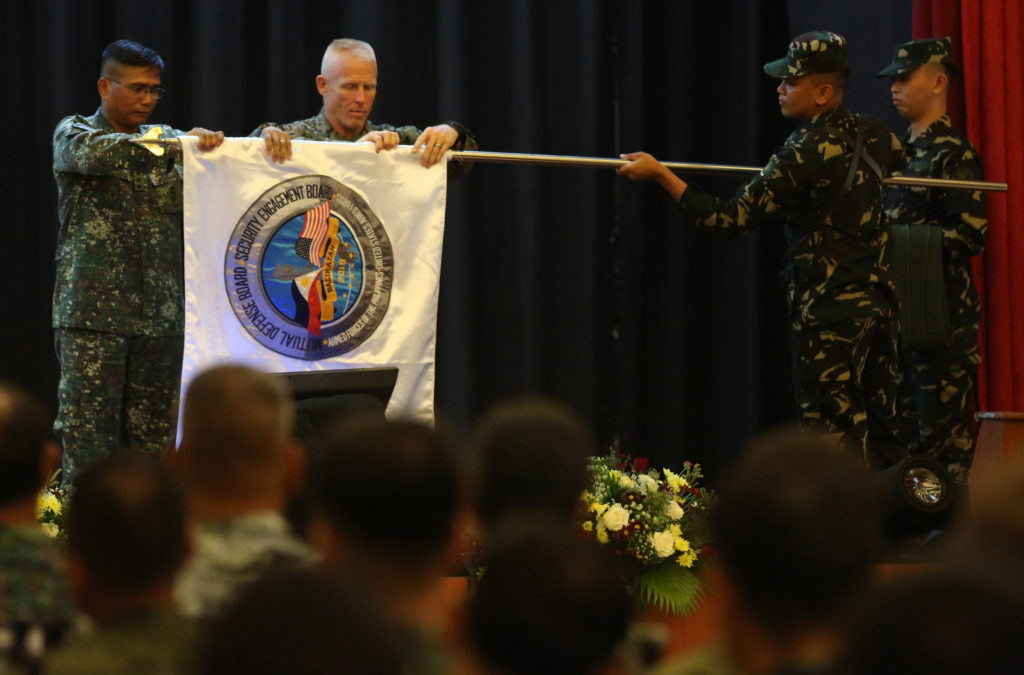
LTGEN. Emmanuel Salamat, AFP, PH Exercise Director (left) and BGEN. Thomas Weidley, US Officer Conducting Exercise, seen furling of Balikatan Flag during the closing ceremony of the Armed Forces of the Philippines-United States Armed Forces Balikatan Exercise at Camp Aguinaldo, Quezon City, May 18, 2018. INQUIRER PHOTO / NIÑO JESUS ORBETA
The 34th iteration of the Philippines-US Balikatan exercises ended on Friday with officials from both sides highlighting its strong defense ties to confront future challenges.
Around 8,000 Filipino and American soldiers participated in the 12-day exercises. Both forces conducted planning and simulation exercises, operational training events and civic activities. Japan and Australia also joined as observers.
“Balikatan has and will continue prepare our armed forces to work together to confront any and all challenges that may jeopardise the mutual defense that we have worked so hard to provide for one another,” said Brig. Gen. Thomas Weidley of US Marine Corps.
The US and Filipino forces also held amphibious landing exercise in San Antonio, Zambales, and combined arms live fire exercises in Tarlac to boost the interoperability of troops.
The drills were held amid China’s increased militarization in the South China Sea, but both Philippines and US downplayed China’s activities in the Spratlys and insisted that the trainings have long been planned and were not aimed at the Asian giant.
“This exercise is a continuation of a very long and fruitful history of cooperation between our two military forces and it helps ensure that we will be ready to stand should to shoulder in defense of our shared democratic values and the international rules based order,” said Michael Klecheski, the US Charge d’ Affairs.
The Balikatan participants also conducted military operations on urban terrain as part of its counterterrorism training.
“This year’s culmination is very timely and relevant to the Armed Forces of the Philippines as we also near the first year of the Marawi siege and its eventual liberation from the hands of the Maute and the ISIS terrorists. Through this event such as this, the AFP is now more ready and more capable to defeat enemies of the state, carrying out with us added learnings and experience,” said AFP chief Gen. Carlito Galvez Jr.
He also said that the exercises manifest the “strong ties” of the two countries as well as “the flourishing bond” with partner nations such as Australia and Japan.
“We have committed to train side by side in order to advance the security and stability of our nations and our region,” he said. /muf

